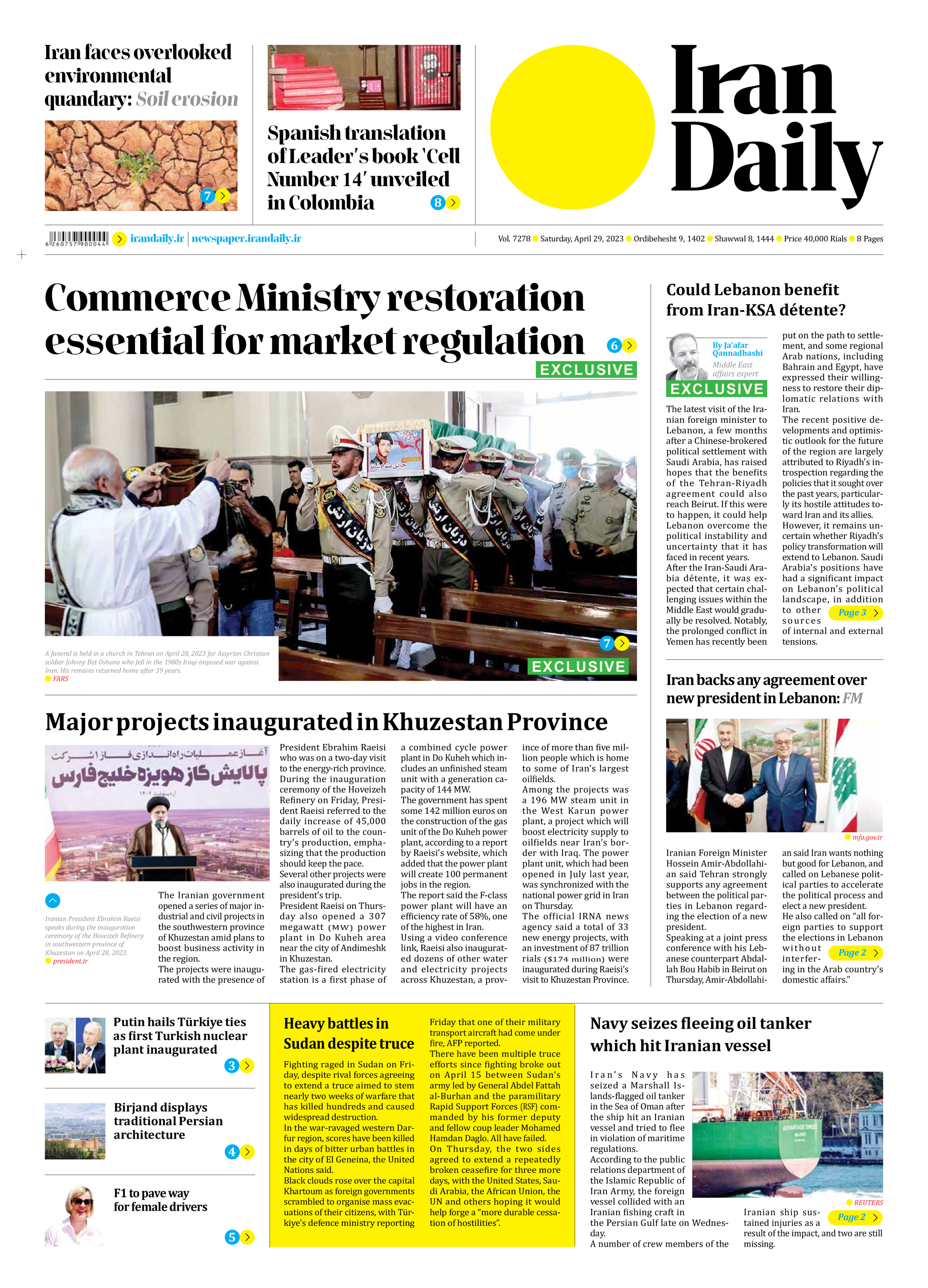
Could Lebanon benefit from Iran-KSA détente?
By Ja’afar Qannadbashi
Middle East affairs expert
The latest visit of the Iranian foreign minister to Lebanon, a few months after a Chinese-brokered political settlement with Saudi Arabia, has raised hopes that the benefits of the Tehran-Riyadh agreement could also reach Beirut. If this were to happen, it could help Lebanon overcome the political instability and uncertainty that it has faced in recent years.
After the Iran-Saudi Arabia détente, it was expected that certain challenging issues within the Middle East would gradually be resolved. Notably, the prolonged conflict in Yemen has recently been put on the path to settlement, and some regional Arab nations, including Bahrain and Egypt, have expressed their willingness to restore their diplomatic relations with Iran.
The recent positive developments and optimistic outlook for the future of the region are largely attributed to Riyadh’s introspection regarding the policies that it sought over the past years, particularly its hostile attitudes toward Iran and its allies.
However, it remains uncertain whether Riyadh’s policy transformation will extend to Lebanon. Saudi Arabia’s positions have had a significant impact on Lebanon’s political landscape, in addition to other sources of internal and external tensions.
For instance, Israel continues to exert pressure and stoke tension in Lebanon, the U.S. Embassy in Beirut is actively influencing the situation, and certain extremist groups in the embattled Arab country see their existence pinned on the continuation of political turmoil.
Despite all these factors, Saudi Arabia holds significant sway over Lebanon’s political arena, both in terms of providing financial support to certain domestic factions and in terms of political influence.
On one end of the spectrum, Iran is one of the countries that has significant political and spiritual influence in Lebanon and has welcomed Saudi Arabia’s fresh approach toward the region. The landmark accord between Tehran and Riyadh is a result of the latter’s reconsiderations.
If Saudi Arabia continues to pursue a policy based on which tensions would ease in Lebanon, while Tehran and Riyadh bring their stances closer together, the political stalemate in Beirut could hopefully break, although Saudi Arabia’s influence is not the only factor at play.
The rapprochement between Iran and Saudi Arabia, along with the interplay between these two regional powerhouses, can undoubtedly bring about a brighter future for the West Asian region. This reconciliation has the potential to turn hostility and tension into cooperation and interaction, thereby enhancing the security and progress of the regional countries.







